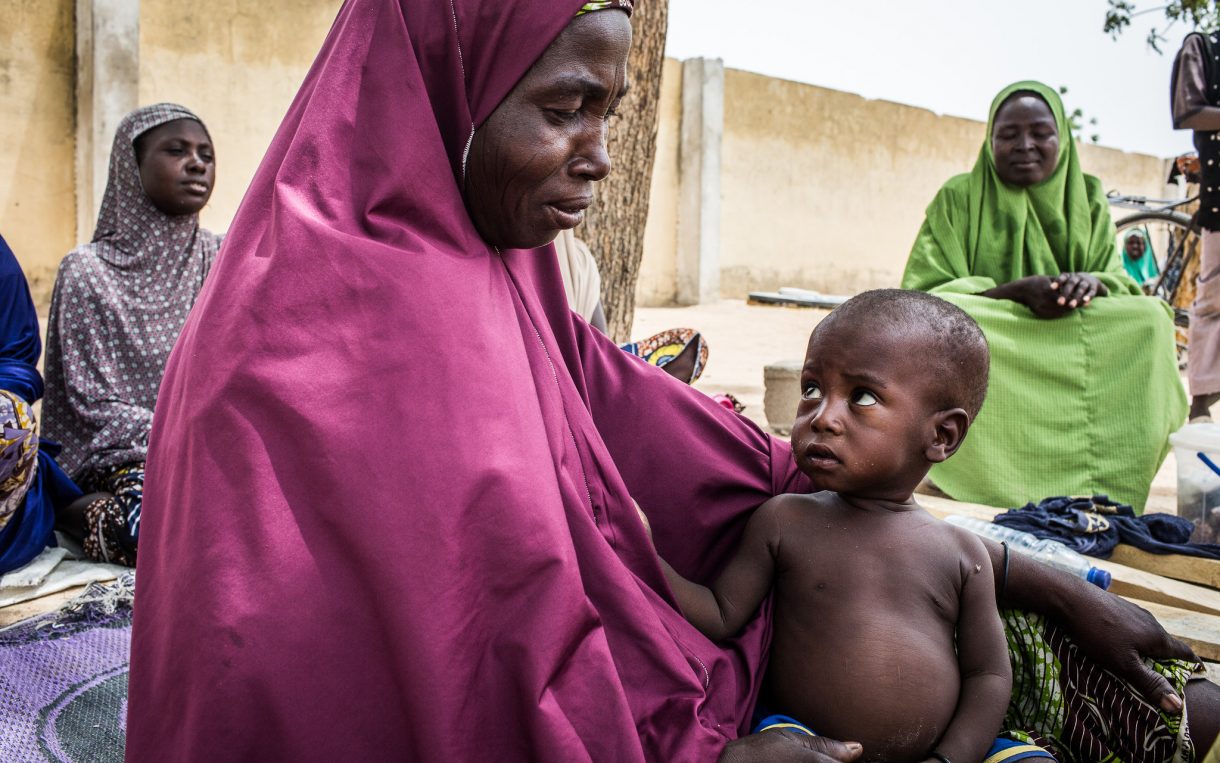Walking in the footsteps of people with no shoes
 People are arriving daily at this temporary site for internally displaced people in Pulka, Nigeria. They come seeking safety, shelter, food, clean water, and other essentials.
Photo: Tom Saater/Oxfam
People are arriving daily at this temporary site for internally displaced people in Pulka, Nigeria. They come seeking safety, shelter, food, clean water, and other essentials.
Photo: Tom Saater/Oxfam
This World Humanitarian Day, Nigerian actress Bimbo Akintola reflects on her experiences visiting a settlement for internally displaced people in Nigeria and the remarkable people, both survivors and aid workers, she met there.
Nigerian actress Bimbo Akintola recently visited Borno State with Oxfam.
August 19 is World Humanitarian Day. On this special day, I would like to express my appreciation for humanitarian workers in Northeastern Nigeria, who are providing lifesaving assistance to millions in need. I hope, little by little, their work will cease to become a necessity as peace comes to Nigeria, and the communities affected by violence are able to go back home and resume their lives.
A few days ago, I was in Borno State visiting camps for internally displaced people in Pulka. As I was walking around the site witnessing the living conditions of people, these questions kept on coming to my mind: How is it possible for people to survive in such hostile conditions, with little or inadequate access to water and food? How is it possible that in Nigeria, one of the richest countries in the continent, people are being deprived of basic facilities such as schools to send their children to or even food to eat?
Pulka is a community within a community. Following the conflict of the past eight years, thousands of people have fled their homes with basic infrastructures, such as schools, hospitals, and markets destroyed. Currently, Pulka has a population of 50,000, including people returning from Cameroon and other displaced people from neighboring villages. During the conflict, people lost their livelihoods, and presently do not have access to economic opportunities because of the prevailing insecurity in the area and military operations. They are unable to go back to their homes, and have no access to their lands or ability feed their family. As a result, most people in Pulka depend on humanitarian assistance for food and water.
There I met Zainab, who lives with her daughter Aisha and her grandchildren in a cramped tent. Both Zainab and Aisha have lost their husbands; Zainab told me her husband was killed when their village was attacked and Aisha is not sure if hers is still alive or dead.
Later, I visited Borno State again with Oxfam to witness the magnitude of the crisis in the northeast. While on the ground, I had the opportunity to not only interact with communities affected by the crisis, but also with the people who are supporting them. The humanitarian workers I interacted with–mostly Nigerians—show a rare and relentless commitment to people who have been ravaged by conflict. Hauwa Kyari, Robert Ekemini, and Mercy Samuel are providing humanitarian assistance to those who have no one else to turn to. In these times of weak principles and false loyalties, these compatriots are an example to highlight.
Especially in North East Nigeria, where the environment is fraught with insecurity, constant attacks, and where the context is constantly changing, humanitarians deserve to be celebrated. Join me in celebrating humanitarian workers for all that they do.
In Nigeria, Oxfam has been providing families with emergency food, and cash or vouchers so they can buy food in local markets. We have also been working to provide clean water and better sanitation services.We need your support to help those on the ground save more lives.